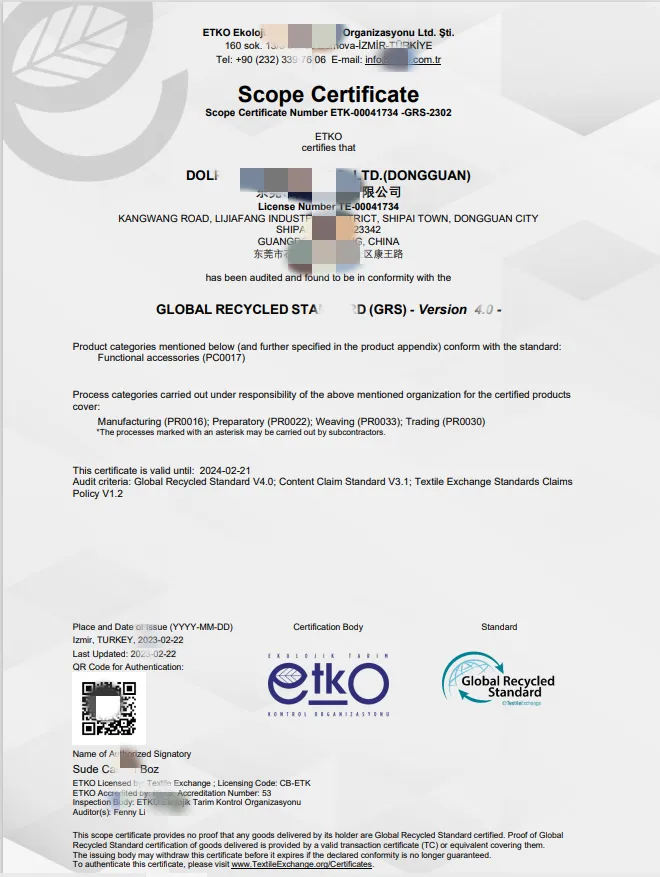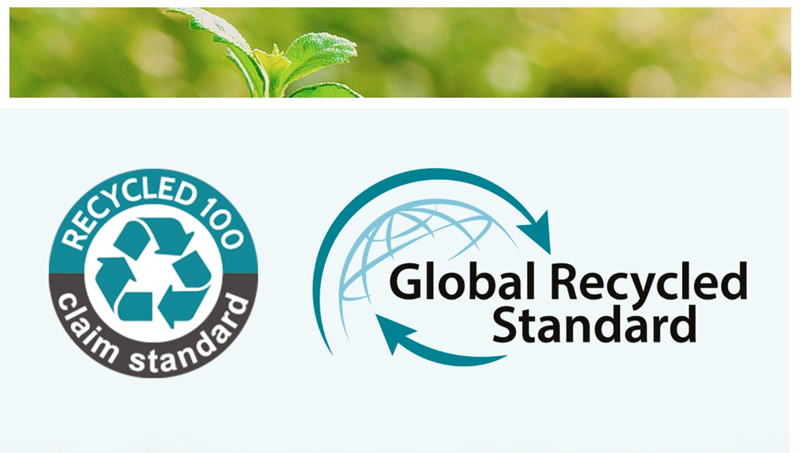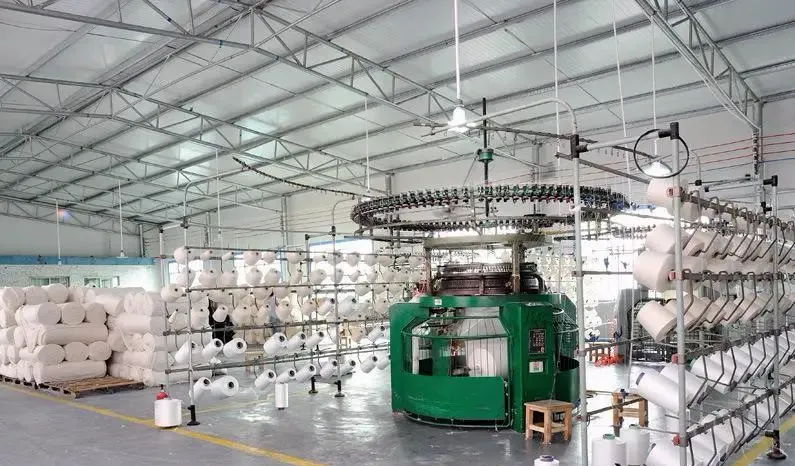GRS Certification Application Process And Fees
Published On: April 24, 2024 By: ray herb

what Is Global Recycle Standard/RCS certification?
The Global Recycled Standard (GRS) is an international, voluntary and comprehensive product standard which sets forth third-party certification requirements for recycled content, chain of custody, social and environmental practices and chemical restrictions. Its goal is to promote increased use of recycled materials in products while decreasing use in end products or semi-finished goods that contain them; certification currently targets companies within textile and apparel industries such as recycled bottle flakes, polyester filaments and short threads made from recycled polyester fabrics or garments that contain them.

What are included in GRS/RCS certification?
GRS certification includes four modules:
Recycled components: Products that feature over 20% recycled parts meet the entry criteria for certification.
Social Responsibility: Businesses that successfully complete social responsibility audits such as BSCI, SA8000 or GSCP can qualify to for exemption from assessments conducted by certification bodies.
Chemical Management: GRS products use various chemicals during their production process, which must be managed responsibly to avoid adverse environmental impact. We have policies and guidelines in place for their oversight.
Environmental Management: Does the company employ an Environmental Management system in place that oversees energy usage, water usage, wastewater disposal and exhaust gas emissions?
RCS Certification only validates: the initial mock evaluation of regenerative ingredients; with recycled content greater than 5% being necessary to qualify.

What are the conditions for the Global Recycled GRS certification?
Products certified by GRS must contain at least 20% recycled content; if the product label specifically states the proportion of recycled content, it must be at least 50%.
Application process for GRS certification.
Step 1: Submit A Certification Application To An Audit Company
Step 2: Contract. After reviewing your application form, an audit institution will provide a quotation based on its evaluation, outlining all budgeted expenses in detail within their contract agreement.
Step 3: Registration. Upon receiving the signed contract for approval, an approval agency will register the applicant and issue them a registration number.
Step 4: Payment. Once an audit institution issues its quotation contract, an enterprise must make payment accordingly.
Step 5: Audit. After verifying that all necessary system documents have been assembled, an audit agency will arrange auditors to conduct on-site audits and issue a formal report two weeks after each audit session.
Step 6: Issuance of Certificate. 2-4 weeks after receiving the formal report, the review agency will issue a certificate detailing any non-compliances found during their inspection, with remedial actions to correct them within an agreed upon timeline.
GRS Certification Fee:
The total cost of GRS certification depends on several variables, including coaching fees, audit fees and travel expenses, in addition to such things as enterprise type, process flow and certification body selection.
GRS certification plays a vital role in moving the textile industry towards an eco-friendly and sustainable direction. By encouraging and rewarding recycled fiber use, it promotes recycling of resources while decreasing primary resource consumption and environmental burden. Furthermore, this certification also raises consumer awareness while prompting more companies and consumers to adopt sustainable purchasing and production behaviors.
GRS Certification With environmental degradation and resource scarcity increasing globally, countries and governments have become more conscious of the importance of environmental protection, recycling and reuse. GRS certification addresses textile industry needs by inspecting recycled products or specific ones specifically, while providing retailers and consumers with insight into which components of products contain recycled material, as well as how these recycled materials are processed throughout their supply chains. Certification also brings other advantages – which we will discuss further below.

Benefits of GRS Certification for factories:
1. Recognized globally for ease of international expansion
2. There is an industry standard label to indicate the presence of recycled materials.
3. Opportunity to be included in an international directory of buyers and world-famous enterprises
4. Strengthen the market competitiveness of enterprises through “green” and environmental protection policies
5. Strengthen brand recognition of enterprises
